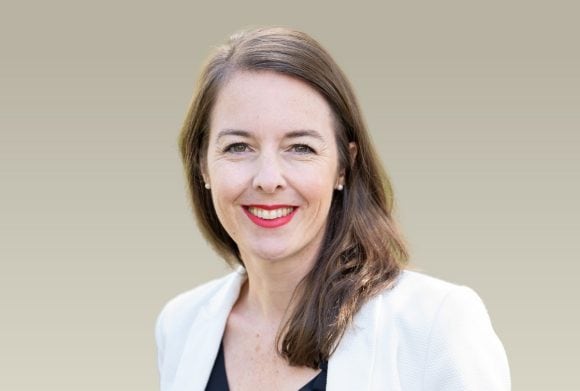Meet the experts
Grégorie Muhr: Enabling people to achieve impact
The impact economy’s rise needs to be supported by strategic philanthropists. Most importantly, it needs empowered people with creative solutions to thrive.

![]()
header.search.error
Meet the experts
The impact economy’s rise needs to be supported by strategic philanthropists. Most importantly, it needs empowered people with creative solutions to thrive.
Grégorie Muhr is the global leader of the UBS Collective Impact and Insights team. She advises wealthy families on how to find their purpose, engage in multigenerational legacy planning, and have more impact with their wealth. She boasts almost 20 years of experience in both the for-profit and non-profit sectors and has co-authored several publications, thought leadership pieces and curated numerous global client experiences and events. Since joining UBS in 2007, Grégorie has worked as a client advisor for UBS Wealth Management and at the UBS Optimus Foundation. She has also led various strategic and change management projects aimed at improving gender diversity in leadership. Prior to joining UBS, Grégorie worked for several large French companies in human resources roles.

What does impact mean to you?
Impact means enabling people to become informed changemakers. My role is catalytic, not just in achieving impactful outcomes but in inspiring and guiding individuals to make decisions that result in real, meaningful, and scalable change. Drawing on my background in HR, it's crucial to me that people can thrive, not only within organizations but beyond.
What is the role of philanthropists in achieving the impact economy?
Philanthropists play a transformative role in the impact economy.
Beyond their financial contributions, they bring unique risk capital that fosters innovation, not just in technology but also in catalyzing broader societal change. Because philanthropists generally don’t expect financial return from their engagement, they can be pioneers and smart risk takers who think outside the box and invest in unproven concepts that can lead to breakthrough solutions. They can also provide patient capital and make the case for commercial investors to add more resources to address global challenges. Their role is exciting and crucial as we seek to leverage an estimated USD 30tr in philanthropic capital to fulfill the ambitious Sustainable Development Goals.
What's the big opportunity for philanthropic capital?
Philanthropy is only one of the tools in our impact toolbox. It presents a significant opportunity for creative and strategic deployment. Beyond traditional giving, there's potential to consider innovative financing models, such as loans or investments, to amplify the impact of every dollar committed.
Philanthropy has evolved into a dynamic field, offering opportunities to address systemic issues and drive transformative change.
My role is to inspire and educate individuals to embrace this creative potential.
What do you bring to the Institute as a fellow?
I bring a unique blend of behavioral and philanthropy insights gathered from many years helping clients having more impact with their wealth. Our published work and active storytelling not only touches our audiences’ emotions but also provides actionable insights on how behavior change can be effectively scaled. Having an HR background, I bring a deep understanding of people and their behaviors, essential elements for driving impactful change and contributing to the Institute's mission of creating informed changemakers who can navigate the complexities of the impact landscape.
How have you incorporated sustainability and impact in your life?
Sustainability and impact are woven into the fabric of my daily life. By embodying values such as minimizing waste, recycling, reducing meat consumption, and supporting local products, I strive to be a role model for my young family. Engaging in open discussions about family giving, encompassing not only financial contributions but also time and belongings, reinforces these values. Being part of a team that recognizes the family as a crucial starting point for impactful change, we actively promote a culture of sustainability and impact, even producing educational materials for the youngest next generation on the essence of philanthropy—in fact the children’s book UBS recently published with Guy Fox has pride of place on my kids’ bookshelf at home!
For further information, please read our thought leadership disclaimer